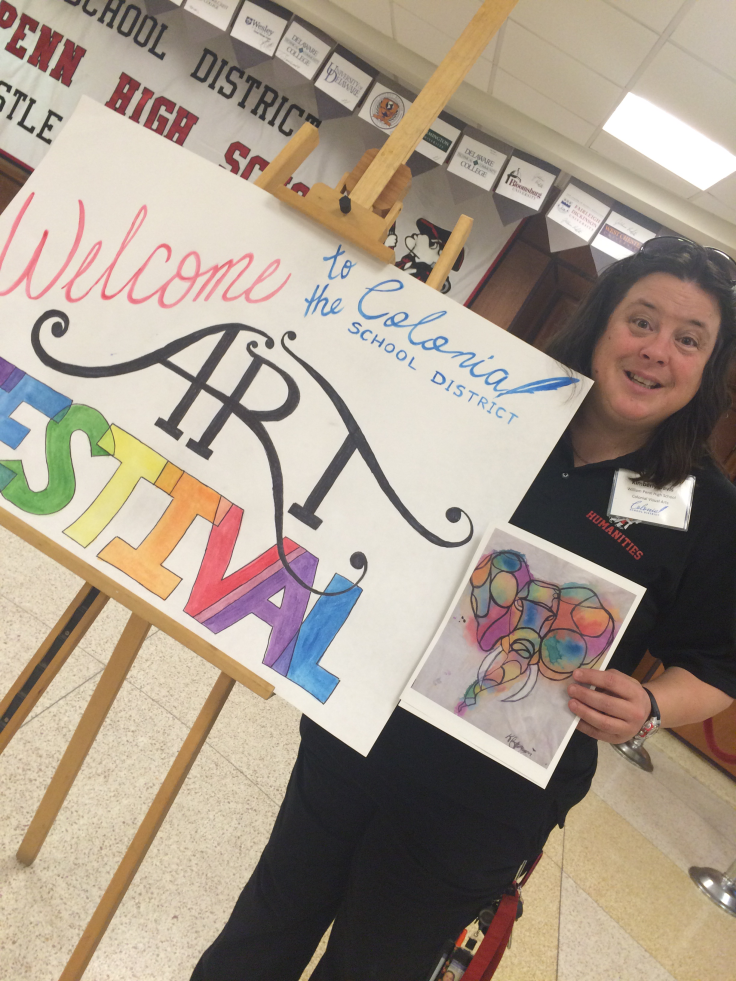By Josie Taraskus
As a student with a job, keeping up with school work and actual work may be difficult. There are plenty of these students throughout William Penn experiencing this struggle called “growing up.”
A school wide survey was conducted collecting data from 120 students. 30.8% of those students have jobs and out of that approximately 40.7% have had their grades drop since getting a job.
Junior Amanda Hopkins, who works at California Pizza Kitchen, works 2-4 shifts per week and her hours can include getting off anywhere between 8:30 and 10:30pm.
She can reach up to 20 hours a week which meets minors laws but for some students that isn’t the case. A small amount of the students, around 4.1%, reported working 30 hours a week. Those who selected the other option in the survey had hours per week varying from 25-60 hours a week. That was selected by 49% of the students who completed the survey. Actually with the amount of hours per shift only 20.8% said they work 5 hours per shift. The larger outcome for this was the 56.3% of students who chose other. Within that, two students said they work seven hours, five said they work eight, and two said they work nine per shift.
Working this much has to somehow affect the work of students. Students are able to find time to squeeze in for projects and homework assignments.
Most students get off from work pretty late at night. Many of them are faced with a decision: to stay up and do the work and be tired in school or not do it at all and get the sleep. Choosing sleep leads to the bigger problem. That’s when you ask yourself, “Do I just face the consequence of not turning it in?” or “Should I try to finish it in another class or in the beginning of the class?” No matter what, there is a consequence in there somewhere. 52% of students turn the work in late some of the time, 14% turn the work in late pretty often, and 8% turn work in late all the time.
“Teachers assign homework, but when they do on the nights I work, I am just way too tired to do it,” Hopkins said.
This leads to another point. Are students getting a good amount of sleep? A poor amount of sleep can lead to a pretty rough day at school the next day, from not being able to focus to just plain falling asleep in class.
It is a known fact that on average a human being should be sleeping 8 hours a night. A small 10.2% of working students are getting 9 hours of sleep each night. 32.7% of working students get 5 hours a sleep a night.
“I only get 2-4 hours a sleep a night,” Hopkins said. A small amount of sleep is accomplished after a night of working and completing homework and projects.
Something else that these students face is whether or not they get the opportunity to do after school activities. Would they rather be working or doing a sport? Although only 37.3% of working students are not able or cannot handle doing after school activities, it is still a difficult task to accomplish. The average schedule for a working student in one day could be getting up at 6 a.m., going to school, getting off at 2:15 p.m., going straight to practice, and by 5:30 p.m. they are working and not getting off till much later that night. Finally going to bed but just to wake up and do it again. Being able to have a weekend with your friends or family can even vanish. From either practicing all Saturday or even working all weekend around practice. Where is there time for a life, let alone school work?
Hopkins says she is able to do it by “working with teachers and the managers to get around hard scheduling.”
But not all things that result from being a student worker are bad. Some students reported better grades after starting working. It may have come up as just 8.2% of the students, but that shows with the right amount of effort it gets better. You hear many students in the halls complaining about dealing with the newest assignment in their English class and then having to go to work before getting to have the chance to do it. But in many cases working has led to having the motivation to do it, having the motivation to keep pushing. If you can juggle school, sports, and work then you’re going be just fine. If you work harder, besides the lack of sleep, you’re focused to keep going. You learn the lesson and what it is like growing up and doing things for yourself being independent.
Hopkins says her grades got better as she began working. In fact, she stated, “The way work is impacting my school performance is that it makes me do better. I am working harder.”
We need more students who can get to this. The question is not if students should be working, but what can be done to make students have an easier time being able to work and succeed earlier in life. Isn’t that what is expected? We as teenagers to finally grow up and become independent and mature? To be given more responsibility. 49 of 52 students said that there should be something done in order to help students maintain having a job and going to school. Some say there should be a program in school to help with studying and homework that work around your schedule, maybe even have teachers give out less homework in general, others just want a way to keep up motivation in general.
Having a job and going to school should not be something a teenager dreads having to deal with, but something a student thrives in doing and feels confident enough in themselves to do.
